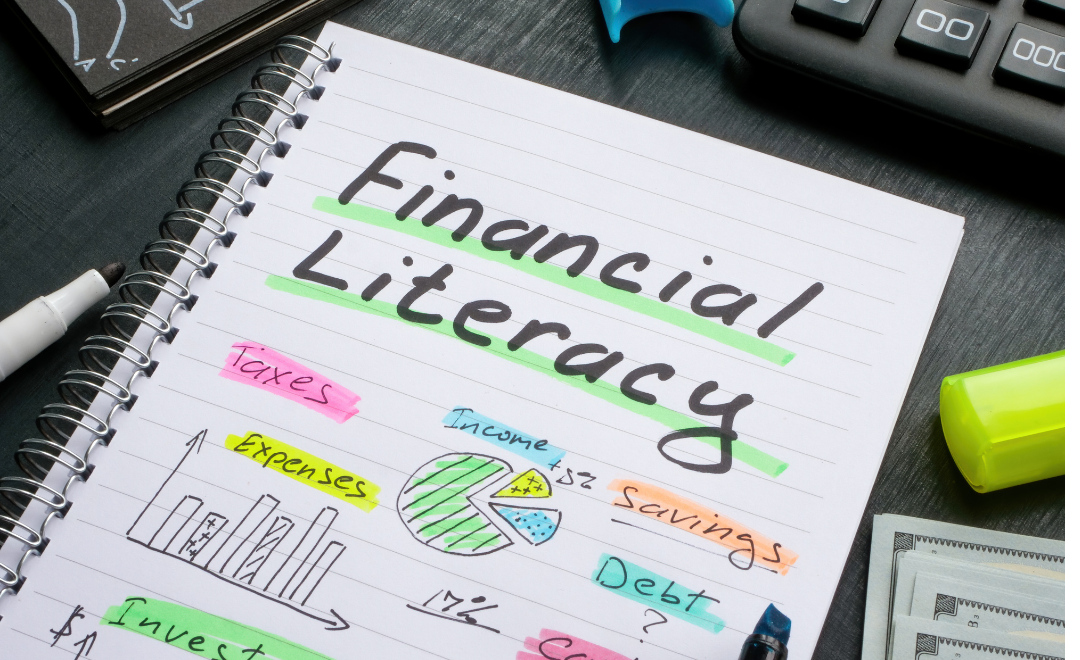Coming back to life after being in prison can be tough and hectic,it requires a lot of actions to make sure life gets back on track.
People face a number of problems that makes this transition often very difficult as many people struggle to find jobs, a place to live, and ways to manage money after being incarcerated.
Without proper financial knowledge and proper budgeting, it can be even harder to start over.
It is no secret that money plays a big role in life, from paying bills to saving for the future.
Learning how to handle finances can help people stay out of most troubles and gives them a chance to create a better life.
Financial literacy means knowing how to budget, save, invest, and manage credit. Everyone has to deal with these things and having some knowledge about these can really help.
For someone coming out of prison, understanding these topics is important for rebuilding life and making sure the finances are managed well.
Many formerly incarcerated individuals face financial setbacks and they have a lot of difficulty in managing finances.
Some may have unpaid fines, debts, or legal fees,others may have family responsibilities and other expenses that a person who is going to start their new life,may encounter .
Many employers are hesitant to hire people with a criminal record,hence some may struggle to find work, making it hard to earn money, which leads to a significant mental toll.
Without a bank account or a good credit score, it can be hard to rent a home or get a loan,making it harder to turn life around.
Learning how to manage finances can help them regain control over their life and work toward a stable and better future.
To tackle some of these situations one of the most important things that can help is budgeting.
Creating a plan for how much money comes in and how much goes out each month is crucial.
Paying bills on time and using credit wisely helps improve a credit score.
Finding ways to pay off debts and avoid borrowing too much money prevents financial pitfalls.
Some small financial decisions can really help in tough times in the future such as putting aside money for emergencies and future goals.
Even with a small income, budgeting and saving can help people stay financially stable and avoid falling into debt.
Finding a job is one of the biggest challenges after incarceration.
People may have multiple options in this regard
There are programs that help formerly incarcerated individuals find work.
Some good options include reentry programs that help with job training and placement.
Trade schools where people can learn new skills for better job opportunities also offer hope.
Other than jobs ,starting a small business or side job, like cutting hair, fixing cars, or selling handmade products, can be another solution.
Government programs provide grants and loans to support new businesses.
Entrepreneurship can also be a great way to build financial independence when finding a traditional job is difficult.
Many organizations offer financial education programs in prisons and after release.
These programs teach budgeting, saving, and credit management skills.
Some community organizations also help by offering financial workshops, job training, and mentorship.
There are some key tips to improve financial literacy and may help during the early days after prison.
Opening a bank account helps with managing money and making safe transactions.
Understanding taxes and legal financial responsibilities prevents future problems.
Paying bills on time and avoiding high-interest loans improves credit scores.
Planning for the future by setting goals for savings, education, and investments ensures long-term stability.
Financial literacy is a powerful tool for people starting over after incarceration.
Taking small steps, like opening a bank account and setting financial goals, can lead to long-term success.
With the right education and support, financial stability is possible.
Everyone deserves a second chance, and understanding financial literacy is the key to a brighter future.
Learning about money is easier with support.
Hence, trying to be in contact with your family or loved ones can really help during this process.
For more complex issues and more personalised advice, there are other channels available that should be explored when need be.
Talking to a financial advisor or mentor can provide guidance on managing money and making smart financial decisions.
Ultimately, it is upon the people to identify this need and take proper actions.
The first and foremost is to ask for help and to stick to the plan of rebuilding their lives.
There are many examples of people who have changed their life after prison.
Anyone can be one of them if they are motivated, eager and ready to change.

